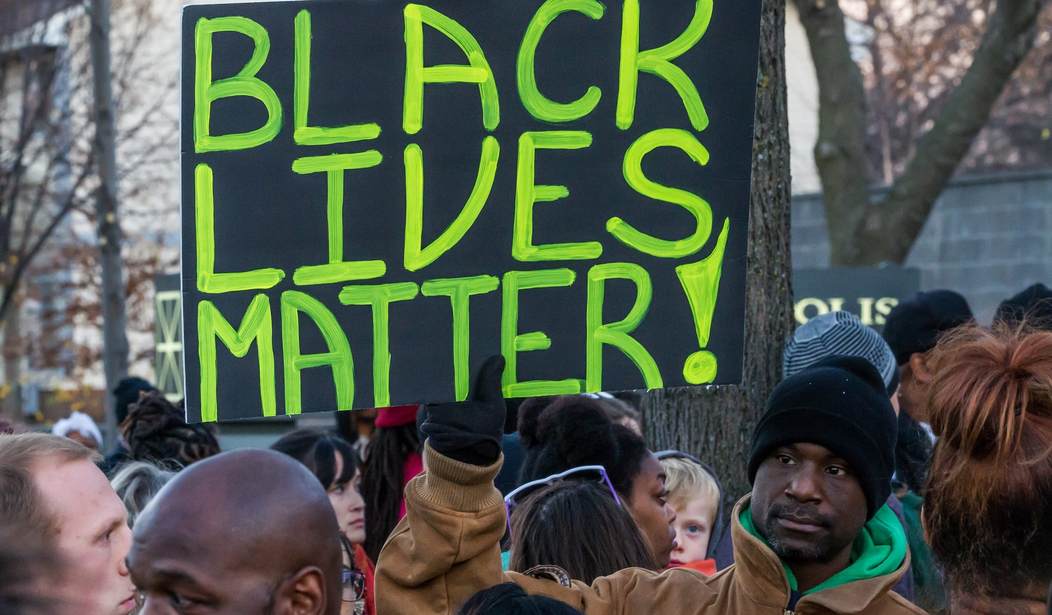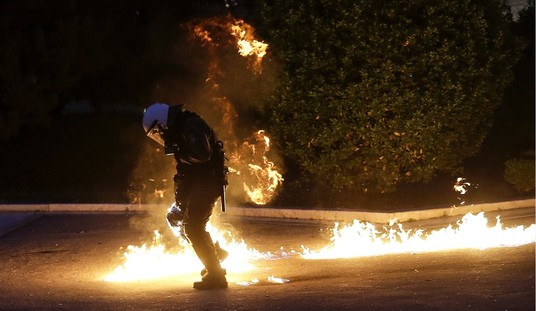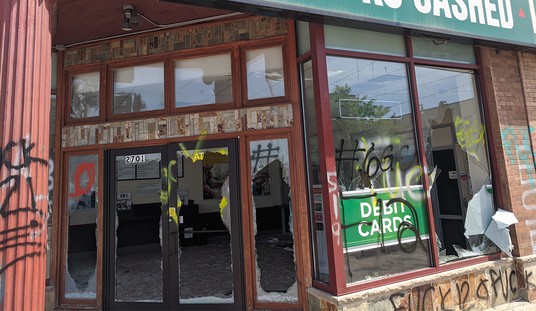Protesters took to the streets in Minneapolis Wednesday after Hennepin County Attorney Mike Freeman announced that he would not pursue charges against two police officers involved in the shooting death of Jamar Clark. The altercation has been a rallying point for Black Lives Matter and related groups since it occurred in November. Many maintained that Clark was shot in the head “execution-style” while handcuffed.
Freeman had earlier capitulated to his critics by deciding not to present the case to a grand jury, instead taking full responsibility for the decision to indict the officers. Freeman justified his choice in a public statement and published links to the evidence he had considered, including video, audio, incident reports, lab reports, and other documentation. From the statement:
Hennepin County Attorney Mike Freeman announced Wednesday that he would not be charging Minneapolis Police Officers Mark Ringgenberg and Dustin Schwarze in the shooting death of Jamar Clark.
Freeman said that a thorough four-month investigation after the Nov. 15 shooting revealed that Clark was not handcuffed at any time. Police were called to the scene because Clark had been identified as a suspect in a domestic assault and was interfering with paramedics’ efforts to treat the victim.
When Ringgenberg and Schwarze arrived, they ordered Clark to remove his hands from his pockets to make sure he did not have a gun. When he refused, the officers moved in and attempted to handcuff Clark. When he resisted, Ringgenberg took Clark to the ground and landed on top of him. However, Ringgenberg felt his gun move to the small of his back. When he reached for it, he felt Clark’s hand on the gun, an account that was supported by DNA evidence.
Schwarze threatened to shoot Clark if he did not release the gun. Clark refused to do so and Schwarze shot Clark in the head. Officer Schwarze’s actions were reasonable because if Clark successfully pulled the gun from the holster, Ringgenberg and Schwarze would have been shot and other bystanders might have been hit as well, Freeman said.
Despite all the evidence exonerating officers Ringgenberg and Schwarze, individuals and organizations who had been protesting the incident predictably cried foul and took to the streets. Here’s an excerpt of a statement from Neighborhoods Organizing for Change (NOC):
We are deeply disappointed at today’s non-indictment of the police officers who executed Jamar Clark, which sends a clear message that the Minneapolis police may act as judge, jury, and executioner in interactions with unarmed black men.
County Attorney Mike Freeman’s account of his refusal to charge officers Mark Ringgenberg and Dustin Schwarze relies heavily on the testimony of officers Ringgenberg and Schwarze themselves, taking their testimony as gospel truth; disregards witness testimony, inconsistencies within the police account, and video evidence of police aggression; and uses dog-whistle language to describe the officers’ fear of a 24-year-old black man.
The officers’ accounts of the interaction with Clark, as quoted by Freeman this morning, are full of dog-whistle language: that he had a “thousand yard stare,” that he was “fidgeting,” criminalizing the fact that his hands were in his pocket as reasons to use force against him. Despite a lack of conclusive evidence beyond the officers’ testimony, Freeman frequently repeated the officers’ reports that Clark said he was “ready to die,” implying he was asking the officers to shoot him. Further, it is remarkable that although this entire interaction happened with Ringgenberg sitting on top of Jamar Clark, the officers’ “de-escalation” response was to shoot him in the head. Fidgeting, having one’s hands in one’s pockets, and staring off into space are not criminal offenses. These are the reasons the officers gave for escalating so violently and immediately upon encountering Jamar Clark. This is the same language used to criminalize young black men in everything from low-level arrests to fatal police shootings all over the country.
Note that NOC makes no mention of the struggle for Ringgenberg’s gun or the DNA evidence corroborating the officer’s account of the altercation. That doesn’t help advance their narrative.
It’s true that fidgeting, having hands in pockets, and staring off into space are not criminal offenses. But then, precisely no one is arguing that they are. Those observations of Clark’s behavior are offered to provide context for the officer’s decision-making process. When a subject exhibits behavior that is abnormal or known to be associated with aggressive or threatening actions, that proves relevant to how a law enforcement officer interacts with him. Oh, and there’s that whole struggling for the officer’s gun thing. That one, as it turns out, is a criminal offense.
Protesters will no doubt continue to lament the outcome in the Clark case with calls for “justice.” But few seem able to articulate what their idea of justice would look like. Multiple agencies took four months to thoroughly investigate all available evidence. That evidence has now been made available to the public. No grand jury was involved, as protesters demanded. All video of the incident has been released, as protesters demanded. So … what else is supposed to happen? Short of automatic charges against any police officer involved in a shooting, what would satisfy those who continue to insist that “justice” has not been served?









Join the conversation as a VIP Member